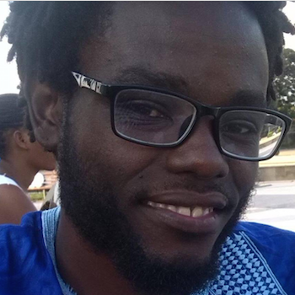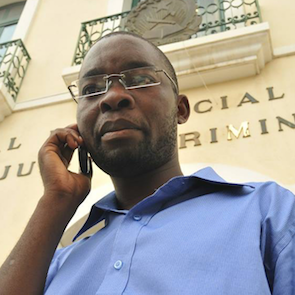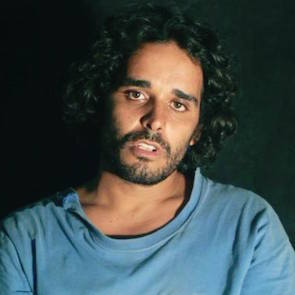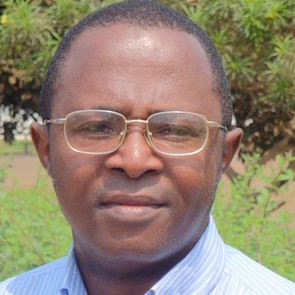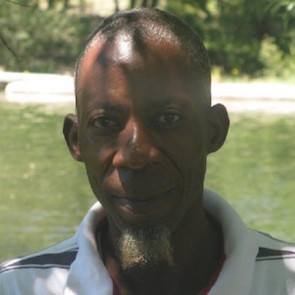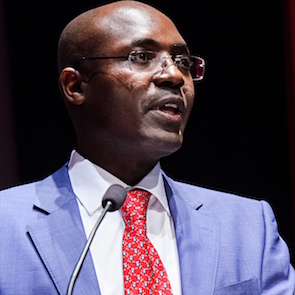UPR Submission - Angola 2019
Submission to the 34th Session of the Univeral Periodic Review, October/November 2019
Date Submitted: 28 March 2019
INTRODUCTION AND KEY CONCERNS
1. This submission focuses on the situation for human rights defenders (HRDs) and journalists in Angola and covers developments from October 2014 to March 2019.
2. In the period under consideration, Front Line Defenders undertook visits to the provinces of Huila, Benguela and Luanda, met with Angolan HRDs in Brazil and Ireland, received information through regular communication with HRDs in the country and provided direct support in 33 cases. The majority of the cases supported related to arbitrary detention and criminalization of HRDs and journalists.
3. In its last Universal Periodic Review (UPR) in October 2014, Angola received four recommendations regarding the situation of HRDs and 15 recommendations regarding freedom of expression and opinion, freedom of the press, freedom of association and the right to peaceful assembly. Front Line Defenders believes that the overall situation for the defence of human rights remains concerning, despite promising new political developments since the 2017 elections (see below), and has identified the following key areas of concern:
- (a) Judicial harassment, particularly through the use of defamation lawsuits;
- (b) Restriction on the right to peaceful assembly and repression of social protest, including instances of excessive use of force during peaceful demonstrations and arbitrary detention and criminalisation of HRDs and protesters;
- (c) Specific targeting of HRDs from the Cabinda province.
4. In addition, Front Line Defenders is concerned at specific obstacles facing economic, social and cultural rights (ESCR) defenders, in particular those working in remote areas of the country on the right to water, the right to adequate housing and those promoting accountability for human rights violations committed in the context of extractive industry (particularly diamonds and oil).
5. It is important to note that during most of the period under consideration, particularly previous to the 2017 elections, international institutions received continuous reports of surveillance, threats, harassment and intimidation of HRDs and journalists and the denial of registration of organisations. A culture of violence against dissident voices and pro-democracy movements permeated Angola while the space for human rights defence was extremely limited. Restrictive laws against independent NGOs were widespread and the judicial system was used to falsely prosecute HRDs.
DEVELOPMENTS SINCE LAST UPR CYCLE
6. Front Line Defenders seeks to highlight the following developments impacting on the situation of HRDs during the period under review:
- (a) Restrictions on freedom of association and the subsequent declaration of unconstitutionality of Presidential Decree 74/15 on the accreditation and functioning of non-governmental organisations.
- (b) The 2017 Elections, the new government of President João Manuel Gonçalves Lourenço and the adoption of the National Strategy on Human Rights (2018-2022).
- (c) Approval of a new Criminal Code by the National Assembly.
(a) Presidential Decree 74/15
7. On 23 March 2015, then President José Eduardo dos Santos issued Decree 74/151 on the status of national and international non-governmental organisations in Angola. The decree imposed further barriers to the registration of NGOs, limiting their scope of action and implementing direct monitoring of their activities (art. 23). It also imposed a need for government authorisation to receive donations (art. 15), which was argued would combat money laundering and the financing of terrorism (art. 38).2
8. The Angolan Bar Association (Ordem dos Advogados de Angola) requested that the Constitutional Tribunal review the matter, which culminated in the repeal of the decree on 5 July 2017 by the votes of 9 of the 10 judges on the Tribunal (court decision 447/2017).3 The regulation was deemed formally unconstitutional due to the lack of competence of the President to rule on matters of fundamental freedoms (such as the freedom of association) – according to the Angolan Constitution, only the National Assembly can rule on such matters.4 This was the first time that the Angolan Constitutional Tribunal declared a presidential decision unconstitutional. Nonetheless, the process failed to assess whether the content of the decree itself was in keeping with the constitution.
9. During the two years that the Tribunal considered the issue, local and international NGOs suffered from insecurity of funding and a shrinking environment in which to operate. This was noted with concern by the Committee on Economic, Social and Cultural Rights in 2016 on its Concluding observations on the fourth and fifth periodic report of Angola. The Committee found that Angola imposed restrictive conditions on the work of HRDs and journalists.5
(b) 2017 Elections
10. On 23 August 2017, Angola held presidential elections for the first time in 37 years. The elections period was marked by severe restrictions on freedom of expression and assembly, and by a direct control of information by the ruling party MPLA.6
11. President João Manuel Gonçalves Lourenço was sworn was into office on 26 September 2017 with a promise to reshape the country’s image and avoid an international backlash on human rights issues. In order to achieve that, an internal evaluation was put in place, through which the new government declared the intention to ameliorate its own structures and serve as an example to be followed internationally. The new government also declared that the defence of human rights would be treated as an aspect of the country’s national security.7
12. In 2018, the government approved the Estratégia do Executivo de Médio Prazo para os Direitos Humanos 2018-2022 ( National Strategy on Human Rights 2018-2022) making reference to a number of recommendations made by international bodies and stating its intention to seek their implementation. The document also includes an specific chapter on strengthening the relationship with civil society organisations.3
(c) New Criminal Code
13. On 23 January 2019, the Angolan National Parliament approved the text of a new Criminal Code9, which brought important changes on human rights issues, such as the decriminalisation of homosexuality and the decriminalisation of abortions in some cases. The new law replaces 133 year-old legislation that was adopted during Portuguese rule, and additionally criminalise acts of discrimination against LGBTI persons in the workplace. However, in most cases the termination of a pregnancy is still considered a crime, and is only permitted when the life of the mother is at risk, in cases of fatal fetal abnormalities and when the pregnancy is a consequence of rape. The 2019 Criminal Code also failed to promote the right to freedom of expression, with defamation still treated as a criminal offence. This law was criticized by HRDs for its lack of compliance with international human rights standards on freedom of the press, given the number of HRDs and journalists criminalised for denouncing human rights violations.
KEY POINTS OF CONCERN
Judicial harassment, particularly through the use of defamation lawsuits
14. Under José Eduardo dos Santos’s presidency, Angolan citizens faced high levels of repression of their freedoms of expression and association. The new government has been slowly signalling a change10, however, several human rights defenders who report on corruption and who demand more democratic governance still face past charges that can lead to imprisonment and monetary fees due to the arbitrary application of criminal defamation laws.
15. In 2015, Rafael Marques de Morais faced criminal prosecution under such defamation laws for writing the book 'Blood Diamonds: Corruption and Torture in Angola', published in Portugal in 2011. The HRD highlighted several human rights violations relating to mining companies and the State. On 21 May 2015, all charges against him were dropped by the Luanda Provincial Tribunal, after pressure from human rights organisations and widespread media coverage of the case.11 However, on March 19, 2018, Rafael Marques de Morais was again tried for his writings. The HRD was charged with “outrage towards a sovereign body” (ultraje ao órgão de soberania) and “insult towards a public authority” (injúrias contra autoridade pública), as a result of an article he published in November 2006 documenting corruption allegations against Angola’s former Attorney General.12 The defender was acquitted on 06 July 2018 by the Luanda Provincial Tribunal.13
16. Angola has used its criminal defamation laws to silence political opponents and journalists who investigated corruption cases and human rights violations. This trend was highlighted in the last UPR and recommendations around the abolition of such crimes were made. Angola’s government, however, did not accept such recommendations at the time and declared that these laws existed to protect individual freedoms.
17. The criminalisation of freedom of expression is a recurrent and serious issue in Angola. This contributes to an environment of fear and repression, and prevents human rights defenders from performing their work of denouncing violations and advocating for rights.
Restrictions on the right to peaceful assembly and repression of social protest
18. The 2014-2018 period was characterised by cases of criminalization, defamation and intimidation of human rights defenders, such as the arrest of several human rights defenders and activists in the case popularly known as 15+2.
19. Between 20 and 21 June 2015, human rights defenders Domingos da Cruz, Afonso Mayenda, Luaty Beirão, Manuel Nito Alves, and Albano Bingo, along with nine youth activists, were detained by the national police and the Angolan National Directorate for Criminal Investigation, due to their participation in a conference on the ''Philosophy of peaceful revolution'', given by Domingos da Cruz. They were detained due to allegedly “preparing to carry out acts that would undermine the order and public safety of the country”.14
20. On 12 October 2015, four other human rights defenders, Adolfo Miguel Campos, “Baixa de Kassangs”, “Veriato” and Mário Sebastião, were arrested while taking part in a church service at a catholic church in Luanda. The group sought to demonstrate their solidarity towards the 15 human rights defenders arrested in June 2015, as well as the deteriorating health state of Luaty Beirão, who was then on a hunger strike.15
21. While in pretrial detention, two human rights defenders suffered police violence, and one of them was tortured. On 14 October 2015, Afonso Matias “Mbanza Hamza” was severely beaten by prison guards; while Benedito Jeremias, after complaining about the extremely harsh conditions of imprisonment, was beaten by approximately twenty prison guards, and tortured with an electroshock baton alongside defender Albano Bingo.16
22. On 8 February 2016, Manuel Nito Alves was sentenced to six months' imprisonment in a summary trial. On 28 March 2016, the Provincial Court of Luanda sentenced the remaining human rights defenders from the 15+2 case to jail terms ranging from two years and three months to eight years and six months for the alleged crimes of “preparatory acts of rebellion” and “association of criminals”. On 29 June, the Angolan Supreme Court ordered the 17 detained HRDs to be put under house arrest. After over one year of arbitrary imprisonment, the group was granted an amnesty.
23. Examples of the extensive criminalisation against HRDs in connection with their freedom of assembly and expression in Angola further include Raul Mandela, who was severely beaten by the police for organising and participating in a peaceful protest on 15 September 2015; and José Marcos Mavungo, criminalised for organising a peaceful demonstration on 14 March 2015.
24. The arrest and sentencing of José Marcos Mavungo raised international concern. The case was addressed by the United Nations Working Group on Arbitrary Detention, the European Union and several human rights organisations worldwide. The situation was deemed contrary to international law17, and Angola was criticized for it while holding the Presidency of the UN Security Council in New York in 2016.18
25. The culture of repressing HRDs in the country has continued, albeit at a reduced level, under the new administration. On 24 February and 24 June 2018, police violently dispersed public protests in Luanda, Benguela and Lunda Norte.19
Specific targeting of HRDs from Cabinda province
26. Cabinda is an oil-rich province (it produces most of the country’s oil exports), located between the Democratic Republic of Congo and the Congo Republic. Since the independence of Angola from Portugal in 1975, separatist movements have been fighting for the independence of Cabinda.
27. During the period under review, Front Line Defenders closely monitored the case of human rights defender Arão Bula Tempo, accused of committing crimes against the security of the State. On 20 March 2015, Arão Bula Tempo was charged with “collaboration with foreigners to constrain the Angolan state” and “rebellion”, both considered crimes against the security of the state. These accusations were in relation to a peaceful demonstration he helped organise denouncing corruption, human rights violations and bad governance in Cabinda. On 11 July 2016, the Provincial Court of Cabinda dropped the charges against him due to a lack of evidence.
28. Currently, although the situation is considered stable by the authorities, the attempts of the government to negotiate with the separatist movements have not progressed. With continuing hostilities there have been high number of complaints from HRDs and political activists, including of arbitrary detention, restrictions on freedom of expression, association and assembly.
29. In early 2019, 62 people, including activists from the Independence Movement of Cabinda (Movimento Independista de Cabinda – MIC), together with their family members and colleagues, were arrested in Cabinda. As documented by Amnesty International20, they were arrested for their involvement in peaceful protests scheduled and announced to take place on 1 February.
CONCLUSIONS & RECOMMENDATIONS
30. Despite the political change and the increased engagement with civil society organisations, there is still much to be done to guarantee an enabling environment for HRDs in the country and to provide accountability for past violations. The Constitution of Angola provides for participatory democracy and also foresees that the State encourages the participation of civil society in solving national problems, specifically through Article 21 (e) thereof. HRDs have long struggled to guarantee a permanent dialogue with governmental institutions and, in the light of the new political scenario, Front Line Defenders expresses the hope that the initial steps taken by the government in this regard will be both continued and improved.
31. Front Line Defenders calls upon the member states of the UN Human Rights Council to urge the Angolan authorities to prioritise the protection of human rights defenders and in doing so to:
- Implement recommendations pertaining to human rights and HRDs by multilateral bodies in a transparent and participatory manner with full involvement of human rights defenders at all levels, especially regarding the ratification and implementation of international human rights treaties;
- Recognise the vital role played by HRDs in promoting compliance with human rights obligations
- Ensure the full, transparent and informed participation of civil society organisations and HRDs working in areas affected by extractive projects and in relation to business and human rights issues;
- Take measures to strengthen and broaden State institutions working in the protection of human rights defenders;
- Ensure prompt and impartial investigations into threats and violence against HRDs, bring to justice those guilty of perpetrating or aiding and abetting in crimes, and provide reparations to the survivors of those crimes;
- Refrain from carrying out criminal procedures against HRDs and journalists on the basis of “inciting rebellion”, “terrorism”, “instigating criminal conduct” and “attacks against or resisting the public authorities”, “outrage towards a sovereign body” and other criminal defamation charges;
- Improve and adapt the legislation on Freedom of the Press and access to Information, the Law of Associations with the Constitution and International Norms on the subject, in order to reduce legal and administrative barriers and to stimulate the creation of new information organs throughout the national territory, including community radio; and
- Regulate the Mining Code to ensure the preservation of the environment and the contribution of mining companies for the sustainable development of the surrounding communities.
